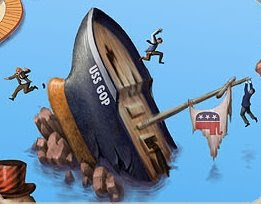What does it take to decide that you're no better than you imagine your worst enemies to be? Can it only be fear of the unknown? I have been in life and death situations before and never had a level of fear that ripped away my moral compass. And I did not get my moral compass from religion nor from an upbringing with a lot of guidance in that area. And yet it seems like a pretty strong, sound system. And I don't consider myself anything out of the ordinary.
So, what does it take?
Another take from Andrew:
Link here http://www.typepad.com/t/trackback/2224950/39987909Does torture become something less awful when we do it? Is it a function of "paranoia" to worry about it when it's done by Americans or Brits? When a "good man" like George W. Bush does it? When a personally humane person like Donald Rumsfeld does it? When we know our motives are good ones? Orwell's answer is categorical. That's why he set Nineteen-Eighty-Four in his native England:
The scene of the book is laid in Britain in order to emphasize that the English-speaking races are not innately better than anyone else.
Do you believe that or not? Churchill didn't, which is why, despite a 9/11 every week in London during the Blitz, he never capitulated to the evil he was fighting against. Bush and Cheney, in contrast, made it standard operating procedure after one attack by people armed with nothing but box-cutters and our fear. History, as John Ashcroft once said, will not be kind.





No comments:
Post a Comment